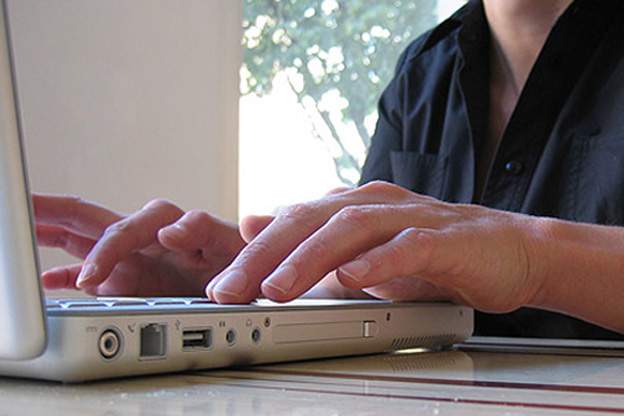
Today on Noon Edition you heard tips from experts on the current media landscape, especially in regards to how consumers can discern fake news posts from factual, journalistically sound articles.
In an increasingly dynamic news media landscape, with very little regulation of online news, fake news is allowed to spread and influence anyone who is willing to click or share.
President of the Indiana Coalition for Open Government, Gerry Lanosga says one of the easiest ways to measure the credibility of a news site is its visual appearance.
“For instance, the more outrageous sorts of come-ons that are urging you to click for the next great ingredient that’s going to cause you to drop ten pounds in a week, you know, the worst looking celebrities that you can imagine, those sorts of links that appear on a news site, a purported news site, can sort of flag you to the potential that it’s not necessarily a legitimate site,” he says.
Assistant Professor at Indiana University’s Media School, Suzannah Evans Comfort, says oftentimes, the burden to recognize legitimate factual news from false news is ultimately a responsibility of the reader.
“The media saturation environment is not going away. The fake news is not going away. It’s going to be more and more on the consumer to try to make sense of the world and be educated about the world," she says.
However, there are many fact-checking sites consumers can utilize to ensure that fake news is recognized as being fake.
Indiana University Informatics Professor, Filippo Menczer says because these stories go viral, there is a bigger chance that a fact-checking website has already looked into it before you read it.
“If it has been shown to you, it is likely that is has already been shown to a lot of other people and in that case it is probable that some reputable fact checking site has already fact-checked it.”
Some of the fact-checking websites brought up by our guests include: snopes.com, politifact.com, and factcheck.org.
While it may require a bit of work on the consumers' end, as long as readers follow experts’ advice, there are means to discern fact from fiction online.
Noon Edition airs every Friday at 12 p.m.
Guests:
Giovanni Ciampaglia, Assistant Research Scientist, Indiana University
Filippo Menczer, Professor of Informatics, Indiana University
Gerry Lanosga, President, Indiana Coalition for Open Government
Suzannah Evans Comfort, Assistant Professor, Indiana University Media School






